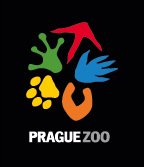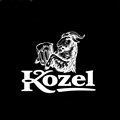Breeding Programme
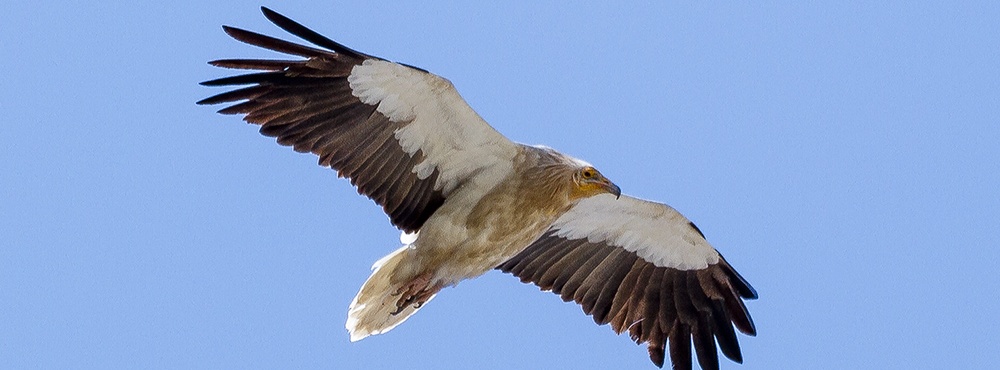
Prague Zoo ranks among the most successful breeders of the Egyptian vulture. Since 2002, it has kept the species’ studbook, and since 2012, it has coordinated its EAZA Ex-situ Programme (EEP), a population management and conservation programme under the auspices of the European Association of Zoos and Aquaria (EAZA).
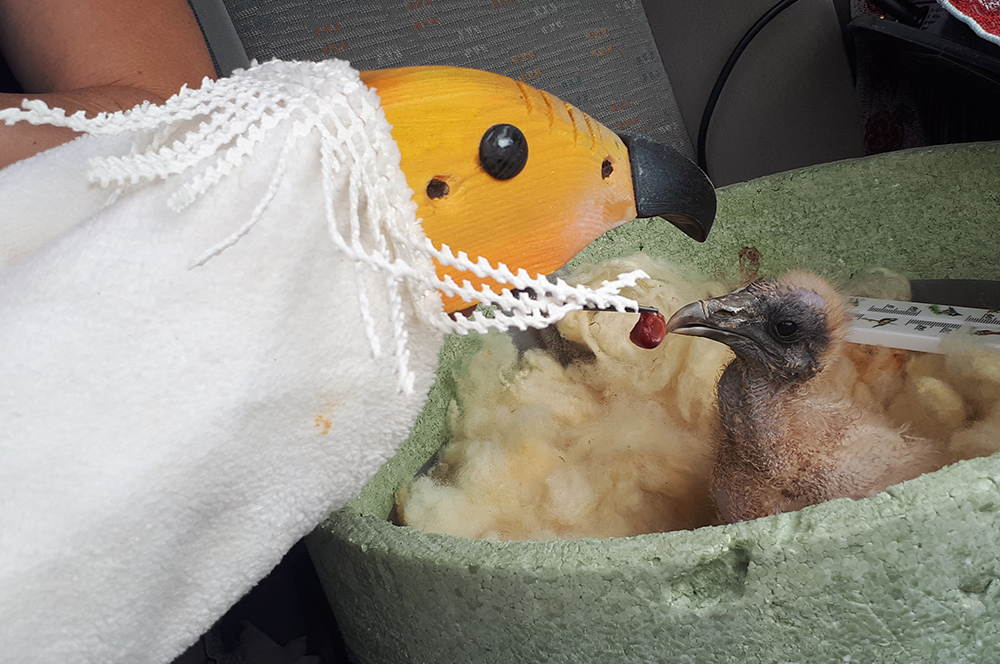
Chicks intended for fostering by a surrogate pair are fed using a puppet to prevent them from imprinting on humans as their parents
Photo: Antonín Vaidl, Prague Zoo
In European zoos, the Egyptian vulture was long overlooked; its European studbook was only established in 2002. It was not until 2012 that its EAZA Ex-situ Programme (EEP)—the highest level of conservation breeding management—was created. Coordination of the programme was entrusted to Prague Zoo, which has historically reared the largest number of Egyptian vulture chicks in European zoos: between 2000 and the end of 2024, a total of 39 chicks hatched there, 33 of which were successfully reared.
A particular feature of Egyptian vulture breeding is that individual pairs must be kept at a sufficient distance from one another in order to begin nesting. The close presence of other conspecifics can disturb them to such an extent that they will not reproduce. For this reason, Prague Zoo keeps its breeding pairs in three separate locations within the zoo grounds, each more than 100 metres apart.
The Egyptian vulture is also the only vulture species capable of raising more than one chick per nest, which is highly significant for its conservation. Chicks that hatch in the incubator, or those whose parents are unable to care for them, can therefore be fostered by experienced surrogate pairs, which will rear them successfully.
Successful breeding of Egyptian vultures under human care is also one of the key conditions for their reintroduction into the wild. Only in this way can a sufficient number of young individuals suitable for release be ensured. That is why Prague Zoo supports the breeding centre in Stara Zagora, Bulgaria, and, through the EAZA Ex-Situ Programme (EEP), also promotes the expansion of Egyptian vulture breeding to other zoos.
Under the coordination of Prague Zoo, permanently disabled wild vultures—those that cannot return to the wild due to injury—are also placed in partner zoos, where they become valuable additions to the breeding stock. In 2022, for example, five Egyptian vultures arrived at Prague Zoo from Lebanon and one from Syria, four of which had been shot during migration. They were successfully rescued, and some of them now live in zoos in Austria and France, while the others have remained at Prague Zoo.
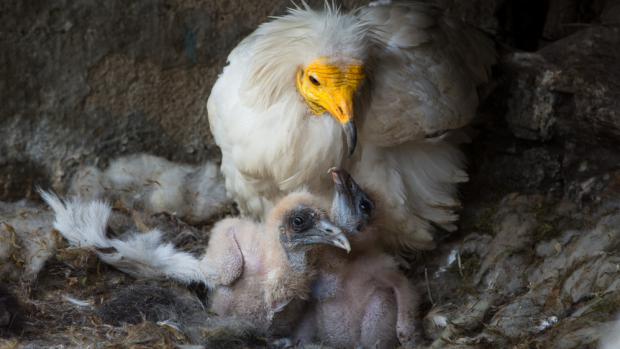
Fostered chicks in the nest of a surrogate pair at Prague Zoo
Photo: Václav Šilha
The smallest of the five vulture species found in Europe, the Egyptian vulture is, together with the Rüppell’s vulture, also the most endangered of them. This is why Prague Zoo is pursuing and developing a project aimed at helping vultures in their southern European homeland.
| Focal species: Egyptian vulture (Neophron percnopterus) Where we help: Bulgaria (mainly the Eastern Rhodope Mountains) and other areas in southern Europe Project active since: 2013 |
 Vultures under threat
Vultures under threat
To a greater or lesser degree, vultures are threatened on every continent where they live, including Europe. The main causes are poisoning from agrochemicals, veterinary drugs, and toxic baits. Power lines also pose a serious threat.
 Breeding programme
Breeding programme
Prague Zoo ranks among the most successful breeders of the Egyptian vulture. Since 2002, it has kept the species’ studbook, and since 2012, it has coordinated its EAZA Ex-situ Programme (EEP), a population management and conservation programme under the auspices of the European Association of Zoos and Aquaria (EAZA).
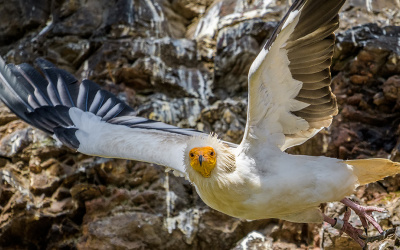 Return to the wild
Return to the wild
We take part in releasing captive-bred chicks back into the wild. We have also contributed to research on release methods designed to ensure the highest possible survival rate for young vultures.
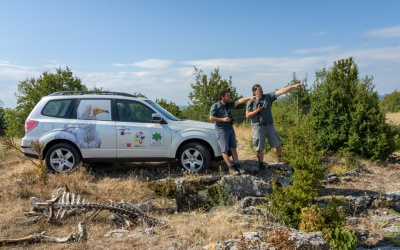 Other activities
Other activities
Prague Zoo provides financial support to the Bulgarian conservation organisation Green Balkans. Among other things, it has contributed to the construction of breeding aviaries and the establishment of a feeding site for the local wild vultures.
ZOOPRAHA.CZ
Contacts
- The Prague zoological garden
U Trojskeho zamku 120/3
171 00 Praha 7
Phone.: (+420) 296 112 230 (public relations department)
e-mail: zoopraha@zoopraha.cz
Others
